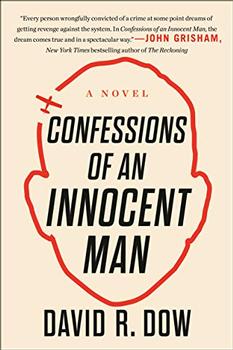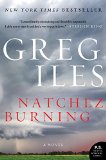Summary | Excerpt | Reading Guide | Reviews | Beyond the book | Read-Alikes | Genres & Themes | Author Bio

Inspired by a true story, Little Deaths, like celebrated novels by Sarah Waters and Megan Abbott, is compelling literary crime fiction that explores the capacity for good and evil in us all.
It's 1965 in a tight-knit working-class neighborhood in Queens, New York, and Ruth Malone - a single mother who works long hours as a cocktail waitress - wakes to discover her two small children, Frankie Jr. and Cindy, have gone missing. Later that day, Cindy's body is found in a derelict lot a half mile from her home, strangled. Ten days later, Frankie Jr.'s decomposing body is found. Immediately, all fingers point to Ruth.
As police investigate the murders, the detritus of Ruth's life is exposed. Seen through the eyes of the cops, the empty bourbon bottles and provocative clothing which litter her apartment, the piles of letters from countless men and Ruth's little black book of phone numbers, make her a drunk, a loose woman - and therefore a bad mother. The lead detective, a strict Catholic who believes women belong in the home, leaps to the obvious conclusion: facing divorce and a custody battle, Malone took her children's lives.
Pete Wonicke is a rookie tabloid reporter who finagles an assignment to cover the murders. Determined to make his name in the paper, he begins digging into the case. Pete's interest in the story develops into an obsession with Ruth, and he comes to believe there's something more to the woman whom prosecutors, the press, and the public have painted as a promiscuous femme fatale. Did Ruth Malone violently kill her own children, is she a victim of circumstance - or is there something more sinister at play?
Emma Flint’s fine debut is all about smashing boundaries. Once upon a time, mysteries and noir novels were not considered literary fiction. While that boundary has already been broken – think Umberto Eco’s The Name of the Rose or Michael Chabon’s The Yiddish Policemen’s Union – how about the notion that true crime can cross over into literary fiction territory? Flint, a longtime fan of true crime stories, has succeeded in melding that genre into Little Deaths, a novel about a mother accused of murdering her children...continued
Full Review
(617 words)
This review is available to non-members for a limited time. For full access,
become a member today.
(Reviewed by Donna Chavez).
 As evidenced in her novel, Little Deaths, author Emma Flint is an aficionado of true crime. These books that chronicle the grim details of actual murders are written with a sensitive ear to readers' morbid curiosity about sensational crimes. The genre has been popular for centuries – people have long been willing to shell out cash to indulge the guilty pleasure of peeping into man's oldest and most heinous practice – murder.
As evidenced in her novel, Little Deaths, author Emma Flint is an aficionado of true crime. These books that chronicle the grim details of actual murders are written with a sensitive ear to readers' morbid curiosity about sensational crimes. The genre has been popular for centuries – people have long been willing to shell out cash to indulge the guilty pleasure of peeping into man's oldest and most heinous practice – murder.
Gutenberg may have had lofty ambitions for his game-changing printing press, but leave it to people to take a fine invention and test its limits by setting it to more and more profane purposes. It didn't take long before Gutenberg's press evolved (or devolved, depending on one's point of view) from printing...
This "beyond the book" feature is available to non-members for a limited time. Join today for full access.

If you liked Little Deaths, try these:

Confessions of an Innocent Man
by David R. Dow
Published 2020
A thrillingly suspenseful debut novel, and a fierce howl of rage that questions the true meaning of justice.

by Greg Iles
Published 2015
Rich in Southern atmosphere and electrifying plot turns, Natchez Burning is tense and disturbing, the most explosive, exciting, sexy, and ambitious story Greg Iles has written yet.